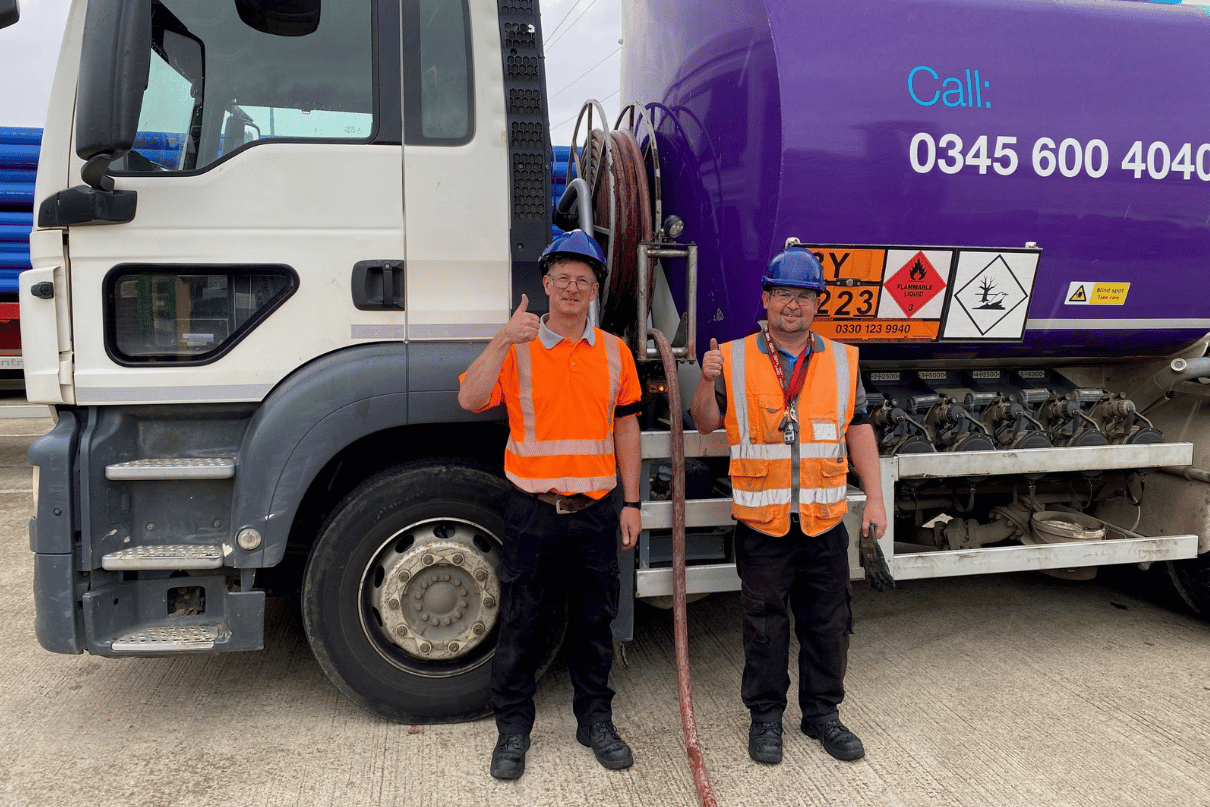
We are making big operational changes which are paving the way towards a more sustainable future. A recent example is that the forklift trucks used at our Huntingdon and Warboys sites now operate on Hydrotreated Vegetable Oil (HVO).
Earlier this year, we opted to move away from diesel and embraced HVO in order to reduce the carbon emissions of our supply chain.
Our motivation?
To deliver solutions to the world’s water challenges and accelerate the transition to clean energy, in as many different ways as possible.
HVO is free from Palm Oil, Fatty Acid Methyl Ester (FAME), sulphur and fossil content. Continued use of this paraffinic fuel will dramatically lower vehicle emissions, as HVO utilises hydrogen as a catalyst instead of methanol, resulting in cleaner burning.
Both the Huntingdon and Warboys sites play pivotal roles in Aliaxis’ operations. While we have started the process at these two key sites, we remain ambitious for the future and steadfast in our goals to increase energy efficiency every year and hit net zero by 2050.
Our carbon emission figures speak for themselves:
- Back in 2023, vehicles on the Huntingdon and Warboys sites produced 142 tonnes of CO2e using diesel*
- We expect that our use of HVO will reduce the amount of CO2e to just 1.9 tonnes per year!*
*This information is derived from the 2023 Greenhouse Gas (GHG) conversion factors, focusing on Scope 1 emissions.
We continue to be encouraged by the United Nations Sustainable Development Goals, particularly goals 6 and 13, which call upon organisations to take urgent action to tackle climate change, ensuring access to water and sanitation for all, while reducing carbon footprint.
To further demonstrate our commitment to clean energy, we have also pledged to:
- Ensure all of our operations will run on renewable electricity by 2025
- This will involve cutting our carbon emissions by 75% per tonne of production






